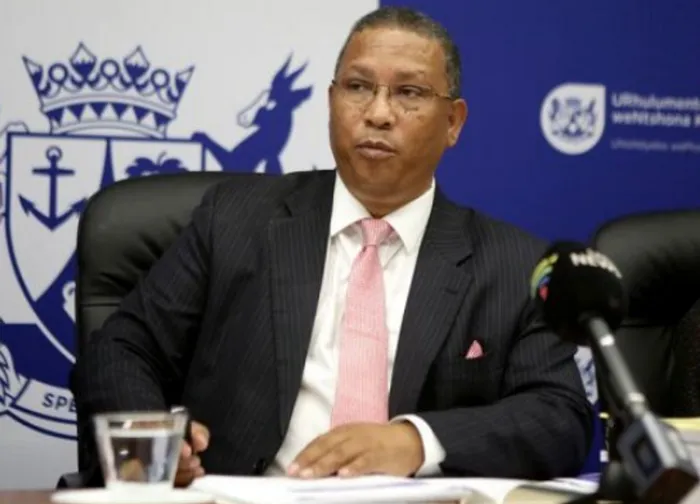Investment Summit a chance to showcase why Western Cape is ready for business

Western Cape MEC for Agriculture, Economic Development and Tourism, Ivan Meyer.
Image: FILE
HAVING concluded Transport Month, we shift our focus from moving people to places, to moving our economic goods to markets and the bold aspirations we hold for the economic future of the Western Cape.
This transition is timely, as we prepare for the upcoming Western Cape Investment Summit from 5-7 November 2025, an event themed “Catalysing Growth, Connecting Opportunities.”
It is imperative that we understand one fundamental truth: the quality of our road infrastructure is not merely a matter of convenience; it is one of the most important determinants of our success in attracting and retaining investment.
Provinces, much like countries, compete globally for capital investment. When investors, whether foreign or domestic, evaluate a new location, they are performing significant risk assessments.
Their calculations include vital considerations such as: how quickly, safely, affordably, and reliably they can move their inputs, goods, and people.
In this assessment, a well-maintained, integrated road network acts as a powerful magnet, signalling efficiency and low risk. Conversely, unreliable infrastructure is a tax on business, adding costly delays, increasing fuel consumption, and demanding higher inventory levels.
The empirical evidence is clear: superior road networks directly translate into lower production costs, lower “end” prices for customers and expanded market reach.
Our agribusiness sector, for instance, relies on seamless cold-chain logistics to get high-value, export-driven produce from farm to port on time.
Speaking of ports, the Western Cape Government applauds Transnet's significant investment at the Cape Town Container Terminal, recognising it as a pivotal moment for regional economic growth.
The R3.4 billion capital injection, specifically the acquisition and operationalisation of new, state-of-the-art rubber-tyred gantries (RTGs), is already delivering tangible improvements.
This strategic upgrade, is essential for improving the port’s global competitiveness, in line with the province's Growth for Jobs (G4J) strategy. I have to commend Transnet and all port stakeholders for their improved performance and view this investment as a strong vote of confidence in the future of our port as a critical trade gateway.
Our burgeoning logistics and warehousing sector, a key focus area of the Investment Summit, thrives only when every kilometre of national, provincial, and municipal road is up to standard. The infrastructure stability we offer is, in fact, one of our greatest competitive advantages on the African continent.
This world-class advantage is no accident; it is the result of a deliberate, combined investment strategy. We are proud of the working relationship between the South African National Roads Agency Limited (SANRAL), the Western Cape Government (WCG), and municipalities.
This collaboration ensures that our road network, from the busiest national artery to the critical provincial connectors and the essential municipal routes is managed, financed, and maintained collectively and effectively.
While our respective mandates vary, our commitment to operational excellence is shared. This partnership goes beyond simple maintenance; it involves joint planning, shared technical expertise, and cooperative financing models that deliver maximum value for taxpayers and citizens alike.
To the investor, this operational cohesion is deeply reassuring, proving that the Western Cape possesses the political will and technical capability to safeguard the assets that underpin private sector operations. This stability and commitment to delivery are non-negotiable foundations for “Catalysing Growth.”
However, the investment argument for infrastructure is only half the story. The true impact of our road network is measured not just in tonnage moved or capital attracted, but in the social and developmental transformation it enables.
Improved mobility is fundamentally about more than moving goods; it is about connecting people to opportunities that allow them to carve a pathway towards opportunities to thrive.
When we reduce travel times and improve safety on our roads, we significantly enlarge the accessible labour market for businesses in economic hubs like Cape Town, the Winelands, West Coast, Garden Route, and Central Karoo.
Simultaneously, we ensure that people living in peri-urban and rural areas can reliably access essential social services, healthcare, and education.
A well-placed provincial road can unlock the agricultural potential of a remote valley, transforming subsistence farming into commercial activity, and connecting local entrepreneurs to regional markets. This creates a deeply inclusive economy, embedding growth where it is needed most.
As we look forward to the Investment Summit, we are showcasing a pipeline of projects that are investment-ready and aligned with our G4J strategy. Crucially, the transport, logistics, and digital infrastructure that supports these projects is already robust, allowing investors to move quickly from commitment to execution.
We understand that today's investment in asphalt and bitumen is tomorrow’s dividend in jobs, market access, and human dignity. Our commitment to maintaining an integrated, superb road network sends an unmistakable message to the world’s capital markets: The Western Cape is open for business, built for reliability, and focused on shared prosperity. Our infrastructure pipeline is our investment into the economic futures of residents of the Western Cape.
Dr Meyer is Agriculture, Economic Development and Tourism MEC in the Western Cape